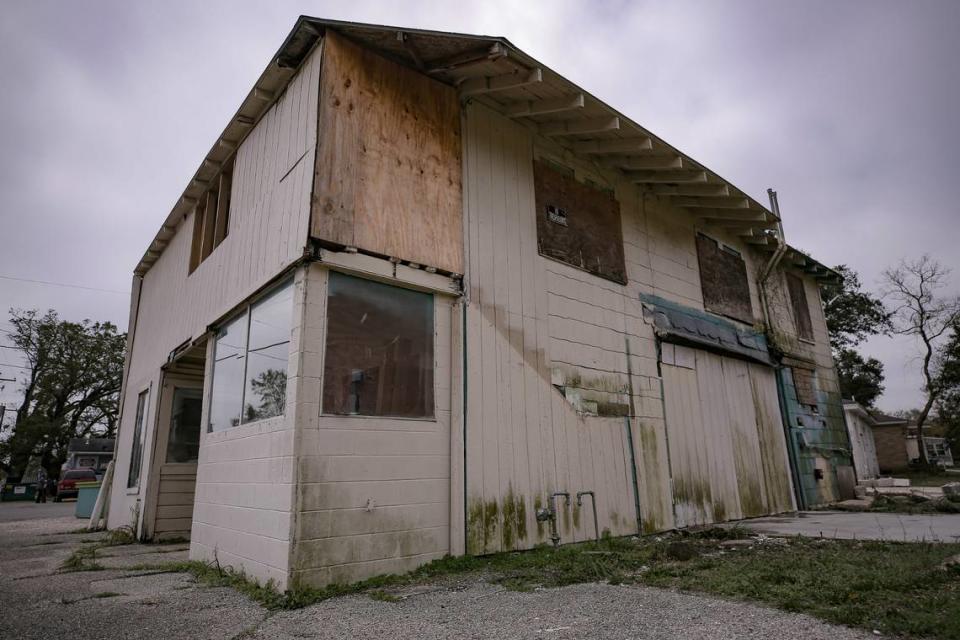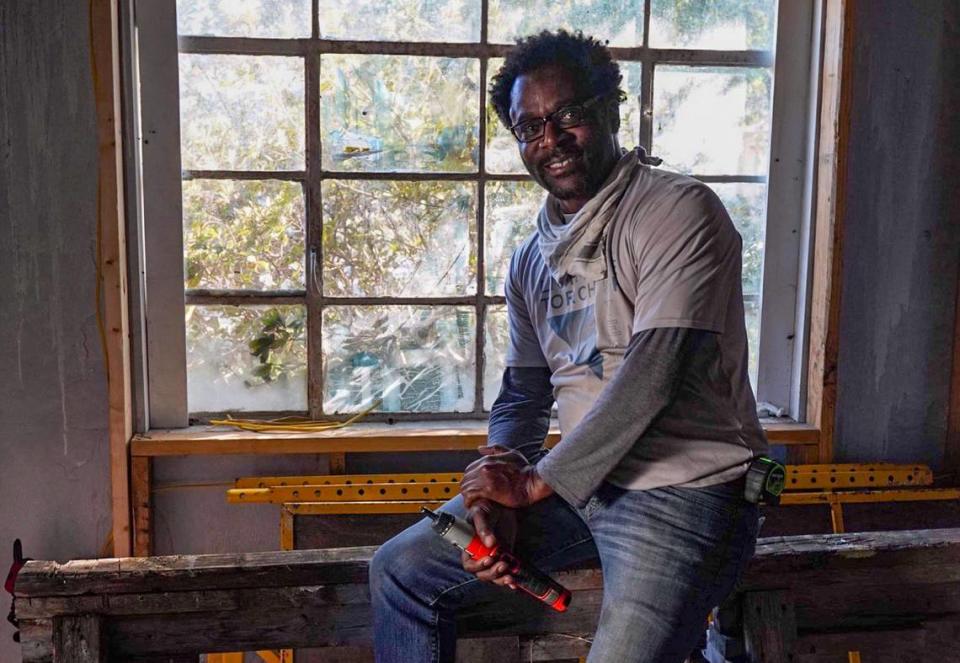His top-rated plan to revive a historic MS Coast building failed to get BP money again. Why?
- Oops!Something went wrong.Please try again later.
Ronnie Matthew Harris was crushed when the state Legislature for the second year in a row rejected funding for his project to restore a building that once bridged two historically segregated neighborhoods in Gulfport, Black Soria City and white Broadmoor.
He sought $898,241 from the Gulf Coast Restoration Fund, which the Legislature created in 2018 for economic development projects in South Mississippi.
Harris followed a public application process outlined in state law that includes scoring and vetting of the projects. His project, the Gulfport Gaslight District, scored in the top five of 83 applications submitted through a public website.
So, Harris thought 2023 would be the year he received funding. Instead, he again got nothing from state lawmakers.
He wants to restore the Broadmoor grocery, where Black and white residents shopped during segregation. The two-story building, currently boarded up, was on the 2021 list of 10 Most Endangered Historic Places in Mississippi.
His plan also included an additional $183,278 in private investment and grants, a community botanical garden, a restored cottage, sidewalks and landscaping.
While Harris followed the law to be considered for funding, the Legislature awarded money for six projects that did not.
“My sneaking suspicion is that it just comes down to who you know, period.” Harris said. “And who knows you, I should add.”
State Rep. Jeffrey Hulum III of Gulfport said he supports the Gaslight District project. But as he pointed out, Hulum is a Democrat serving his first term in a legislature with a Republican super majority.
“We’re fighting for the project and are going to continue to fight for the project,” Hulum said. “Some things don’t happen overnight. You’ve just got to keep chopping at it.”
The state representative in whose district the project is located, Republican Richard Bennett of Long Beach, is a member of the appropriations conference committee that ultimately produces the final project list that legislators vote to approve. Bennett did not return phone calls from Harris or other project supporters before this year’s list was finalized and has not responded to the Sun Herald’s requests to comment.

How economic development program works
Each year through 2033, about $30 million is being deposited in the Gulf Coast Restoration Fund from a state settlement for economic damages caused by the 2010 BP oil spill. A law the Legislature passed in 2018 outlines an application, vetting and scoring process that government entities, businesses, nonprofits and public-private partnerships are supposed to follow for funding
Applications are submitted through a public website, where they are available for review.
The Mississippi Development Authority, the state economic development agency, uses 15 criteria that legislators included in the law to score each project. The seven-member Gulf Coast Restoration Fund Advisory Board, established under the law, spends months sifting through applications and holds public meetings to discuss them.
Before each legislative session begins in January, MDA submits a package that includes its scores and funding recommendations, and the advisory board’s picks.
Projects are supposed to have potential to improve South Mississippi’s economy, but most applications come from local governments rather than private businesses. Legislators have said they try to spread the money around their districts and have in some cases used the fund to fill gaps in local government budgets.
The Legislature has approved projects without applications in each of the four years the program has been in place. This means the projects were not independently vetted or scored for economic development potential, and the public has no immediate details on how the money will be spent.
This year, legislators awarded a total of $13.2 million to six projects without applications. The Legislature dipped into fund reserves to award a total of almost $51 million for all the projects.
Projects funded without applications, funding recipients and money provided:
Pincher’s Seafood in Hancock County, $3.6 million, and the only private business to receive funding.
I-10 and Canal Road Site Development, Harrison County Development Commission, $3.6 million
Technology Park and Site Development at Stennis Airport, Phase I; Hancock County Port and Harbor Commission, $2 million
Mississippi Cyber Center, Mississippi State University Research and Technology Corp., $2 million
City Government Safety Complex, City of Bay St. Louis, $1 million
Moss Point Downtown Revitalization, Moss Point Redevelopment Authority, $1 million
The Legislature approved an additional 10 projects that were not recommended after being independently scored and vetted. Those projects include a park stage in Lucedale, several road projects, an accessible boardwalk in Bay St. Louis and a technology park in Pearl River County.
Republican Coast Sen. Brice Wiggins said the Legislature has the prerogative to fund the projects it chooses.
“They were requested, the money was there, we did the vetting and it was decided to do it,” he said. Considering how many projects the Legislature funded, he said, six without applications was “a pretty good ratio.”
Gaslight District and family roots
Hulum was the only legislator whom Harris was able to reach this year to pitch the Gulfport Gaslight District project.
Harris’ project scored in the top five of 83 applications submitted. He is proposing a project designed to boost economic development in an area that once bustled with local businesses.

He wants to restore the Broadmoor grocery store, where black residents of Soria City and white residents of Broadmoor shopped during segregation. The renovated building would include a cafe on the first floor and two suites with a shared kitchen and living space for short-term rentals on the second floor.
Harris bought the building in 2019. He believes his project, and the improvements surrounding it, would set the tone for more development in the community, which sits between downtown Gulfport and the showcase Centennial Plaza property on the waterfront.
Harris has family roots in Soria City but moved with his family as a child to Chicago. He returned to Soria City as a teenager to live with his grandmother. He is back and forth these days, with Gulfport as home base and his work as a community developer in Chicago.
He was disappointed that none of the legislators he tried to call about the project got back to him during the session. He did not make a trip to Jackson, as he did last year, to meet with legislators, including Bennett.
The restoration fund advisory board also recommended his project in 2022, although MDA did not.
He said that he plans to continue applying for funding.
“I feel quite deflated at times,” Harris said, “but because of what I think it will bring to my neighborhood, I can’t give up.”

